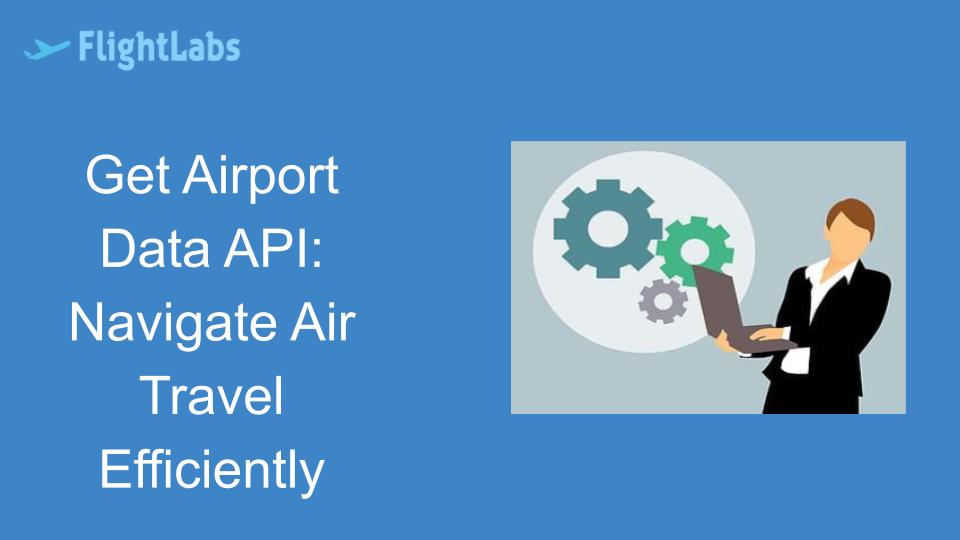Get Airport Data API: Navigate Air Travel Efficiently

In today's fast-paced aviation business, airports require effective data management to simplify operations, improve passenger experiences, and assure safety and security. Airport APIs help to maximize productivity in airport data management by enabling real-time data access, automation capabilities, and seamless connection with diverse systems. In this blog article, we will look at how Airport APIs may assist airports increase data management efficiency and operational effectiveness.
Real-Time Data Access:
Airport APIs provide real-time data access, which is a crucial utility. These APIs provide airports fast access to essential information including flight statuses, gate assignments, luggage handling, and security alerts. Airports may use real-time data to make educated choices rapidly, improve resource allocation, and adjust swiftly to changing operational situations, eventually enhancing efficiency and passenger pleasure.
Automation and Integration Using FlightLabs
FlightLabs automate mundane processes and integrate seamlessly with internal systems and third-party apps. APIs, for example, can be used to automate airline check-in, luggage tracking, passenger alerts, and aircraft maintenance scheduling. Integration with airline systems, airport management software, and security procedures helps to speed operations, decrease human mistakes, and improve overall data management efficiency.

Improved Passenger Experience:
FlightLabs improves the passenger experience by offering tailored services, real-time information, and seamless navigation around the airport. APIs, for example, can enable smartphone apps that provide digital boarding passes, flight status notifications, aid with navigation, and information about airport services. Airports may use APIs to provide a seamless and engaging experience for travelers, resulting in greater satisfaction rates.
Data Analytics and Insights:
FlightLabs provides powerful data analytics and insights, enabling airports to monitor trends, track performance indicators, and extract actionable insights from large volumes of data. For example, APIs can monitor passenger behavior, aircraft punctuality, luggage handling delays, and security events to find areas for improvement and apply data-driven operational efficiency plans.
Enhanced Safety And Security:
FlightLabs increases safety and security by giving real-time information on threats, emergencies, and regulatory compliance. APIs can be integrated with security systems, surveillance cameras, access control systems, and screening technologies to monitor airport activity, detect abnormalities, and respond quickly to possible security threats, creating a safe and secure environment for passengers and employees.
Streamlined Communication:
FlightLabs simplify communication among stakeholders, airlines, ground handlers, and service suppliers. APIs provide for real-time data sharing, collaborative decision-making, and automatic notifications about operational updates, flight modifications, and emergency alerts. This simplified communication improves collaboration, closes communication gaps, and increases overall operational efficiency.

Scalability And Flexibility:
FlightLabs is scalable and versatile, accommodating growing data quantities, different FlightLabs use cases, and emerging technology. Whether an airport serves a few hundred people or millions, APIs can expand to meet demand, connect with new technologies, and adapt to changing operational demands, assuring long-term efficiency and effectiveness in data handling.
Conclusion
FlightLabs enhance airport data management efficiency by enabling real-time data access, automation, seamless integration, efficient resource allocation, improved passenger experiences, data analytics insights, enhanced safety and security measures, streamlined communication, scalability, and flexibility.